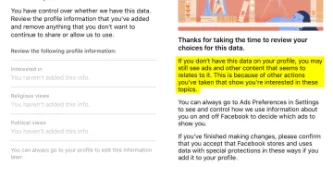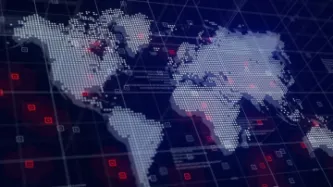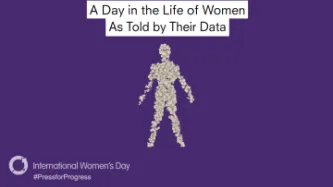Search
Content type: Long Read
It’s 15:10 pm on April 18, 2018. I’m in the Privacy International office, reading a news story on the use of facial recognition in Thailand. On April 20, at 21:10, I clicked on a CNN Money Exclusive on my phone. At 11:45 on May 11, 2018, I read a story on USA Today about Facebook knowing when teen users are feeling insecure.
How do I know all of this? Because I asked an advertising company called Quantcast for all of the data they have about me.
Most people will have never heard of…
Content type: Long Read
Creative Commons Photo Credit: Source
In the midst of continued widespread public outrage at the US government’s brutal ‘zero-tolerance’ policy around immigration – multiple data and analytics companies have quietly avoided answering questions about their role in feeding the US Immigration and Customs Enforcement (ICE) agency’s data backbone. These companies are bidding to work with an agency that has time and time again shown itself to be a brutal and problematic.
Privacy International…
Content type: Long Read
This piece was written by PI voluteer Natalie Chyi.
Transparency is necessary to ensure that those in power – including governments and companies – are not able to operate in the dark, away from publicscrutiny. That’s why calls for more transparency are routine by everyone from civil society and journalists to politicians.
The bigger picture is often lost when transparency is posed as the only solution to shadowy state and corporate powers. For one, the term is so broadly understood that it…
Content type: Long Read
Privacy and data protection are currently being debated more intensively than ever before. In this interview, Frederike Kaltheuner from the civil rights organisation Privacy International explains why those terms have become so fundamentally important to us. The article was first published in the newly launched magazine ROM. The interview was conducted by ROM publisher Khesrau Behroz and writers Patrick Stegemann and Milosz Paul Rosinski.
Frederike Kaltheuner, you work for Privacy…
Content type: Long Read
Yesterday the UK's Information Commissioner's Office (ICO) - which is responsible for ensuring people's personal data is protected - announced it intends to fine Facebook the maximum amount possible for its role in the Cambridge Analytica scandal.
This decision highlights of how serious and rampant misuse and exploitation of data is. Facebook is responsible and failed to comply with data protection 101: be upfront and honest about what you are doing with people's data.
Importantly, the ICO's…
Content type: Long Read
We found the image here.
Open a Russian Matryoshka doll and you will find a smaller doll inside. Ask a large data company such as Acxiom and Oracle where they get their data from, and the answer will be from smaller data companies.
Data companies – a catch all term for data brokers, advertisers, marketers, web trackers, and more – facilitate a hidden data ecosystem that collects, generates and supplies data to wide variety of beneficiaries. The beneficiaries of the ecosystem can include other…
Content type: Long Read
If you operate an internet company in Russia, you aren’t necessarily surprised to one day open the door to someone, grasping in one hand a bundle of wires and in the other a letter from a government agency demanding access to your servers, with a black box wedged under one arm.
Internet companies in Russia are required by law to store the content of users’ communications for six months and the metadata of users’ communications for three years, essentially meaning that what a person does…
Content type: Long Read
We found the image here.
When we browse the internet, go to work, drive down the street, go shopping, interact with institutions, or simply move through the city, data is collected about us.
Advanced profiling technologies answer questions we did not raise. They generate knowledge we did not anticipate, but are eager to apply. As knowledge is power, profiling changes the power relationships between the profilers and the profiled.
In a world where everything we do becomes more and more…
Content type: Long Read
As we said before, Facebook and Cambridge Analytica scandals are a wake-up call for policy makers. And also a global issue. People around the world are concerned by the exploitation of their data. The current lack of transparency into how companies are using people’s data is unacceptable and needs to be addressed.
There is an entire hidden ecosystem of companies harvesting and sharing personal data. From credit scoring and insurance quotations to targeted political communication, this…
Content type: Long Read
In December 2017, Privacy International published an investigation into the use of data and microtargeting during the 2017 Kenyan elections. Cambridge Analytica was one of the companies that featured as part of our investigation.
Due to the recent reporting on Cambridge Analytica and Facebook, we have seen renewed interest in this issue and our investigation. Recently in March of 2018, Channel 4 News featured a report on micro targeting during the 2017 Kenyan Presidential Elections, and the…
Content type: Long Read
The ongoing Facebook and Cambridge Analytica scandal is a wake-up call for UK policy-makers who too often encourage and promote digital industries over the protection people’s personal data. The scandal has shown that the public is concerned by companies’ exploitation of their data. The current lack of transparency into how companies are using people’s data is unacceptable and needs to be addressed.
Reform should not be limited to the behaviour of individual companies. Consumers are confronted…
Content type: Long Read
Over the past few days we've all learned details about how Cambridge Analytica was able to amass data on voters through the use of an app that would gather data on approximately 50 million Facebook users, including 30 million psychographic profiles.
This is three stories in one.
Yes, this is another story of data that has been exploited for political advantage, again. Political parties and governments continue to want access to social media intelligence and continue to develop profiles…
Content type: Long Read
To mark International Women’s Day 2018, Privacy International and some of our partner organisations - Datos Protegidos, Derechos Digitales, the National Coalition for Human Rights Defenders-Kenya, the Karisma Foundation, and the Foundation for Media Alternatives – are telling the stories of women across the world as told by their data over the next seven days (for us, it’s International Women’s Week!).
Gender inequality has many complex dimensions and data exploitation is yet another.…
Content type: Long Read
The era where we were in control of the data on our own computers has been replaced with devices containing sensors we cannot control, storing data we cannot access, in operating systems we cannot monitor, in environments where our rights are rendered meaningless. Soon the default will shift from us interacting directly with our devices to interacting with devices we have no control over and no knowledge that we are generating data. Below we outline 10 ways in which this exploitation and…













